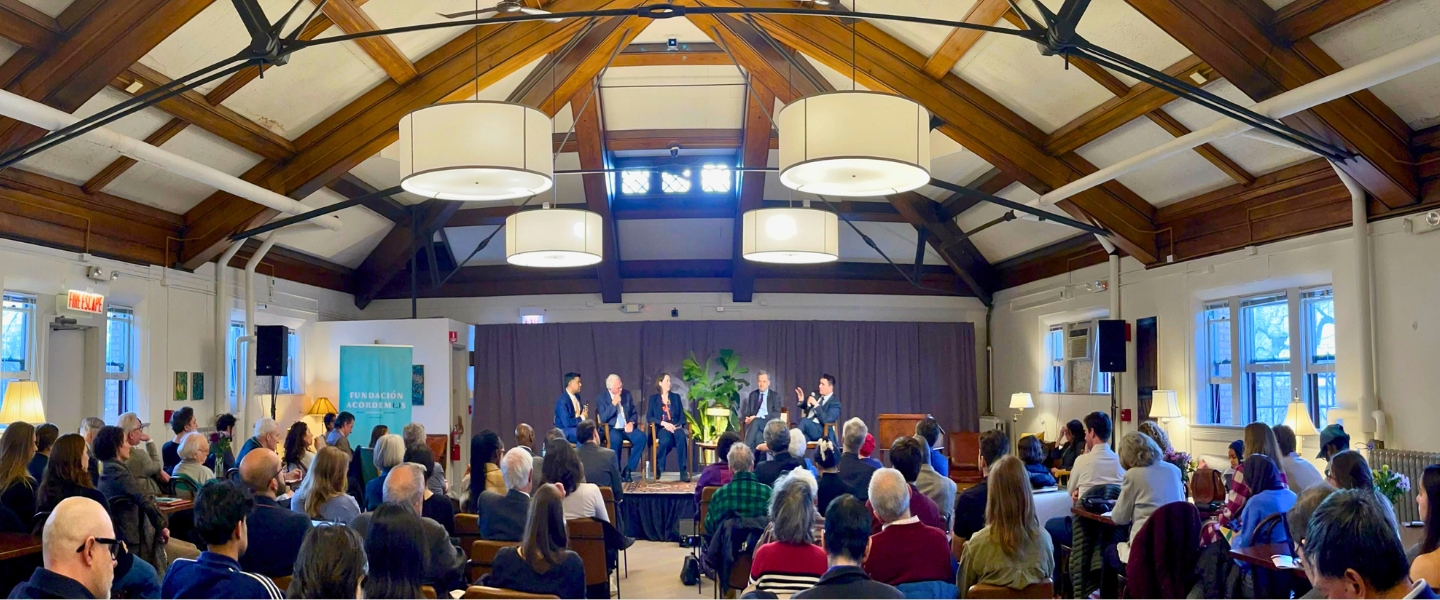Negotiating Peace in a Multipolar World: Lessons Learned
The Buffett Institute's yearlong international diplomacy series culminated in our spring-quarter symposium, Negotiating Peace in a Multipolar World: Lessons Learned, organized with Fundación Acordemos. This two-day event brought together diplomats, negotiators, and academics to discuss the high-profile peace processes of recent decades, drawing lessons for future negotiations in a world confronting a crisis of multilateralism. Watch the panel discussions below, or listen to the discussions via Spotify or Apple Podcasts.
Day 1: Opening Plenary
Negotiating Peace: Looking Back to Look Forward
- Christopher R. Hill, five-time US ambassador, whose last post was as ambassador to Serbia from 2022–2025
- Kate Fearon, founding member of the Northern Ireland Women's Coalition who participated in negotiations leading to the Good Friday Agreement
- Sergio Jaramillo, President of Fundación Acordemos and Colombia's former High Commissioner for Peace of Colombia
- Pavlo Klimkin, Ukraine's former Minister of Foreign Affairs and co-founder of the Centre for National Resilience & Development
- Moderated by Ravi Agrawal, Editor-in-Chief of Foreign Policy
Day 2: Full-Day Program
00:00:00 | Opening Remarks
- Deborah Cohen, Director of the Buffett Institute for Global Affairs and Richard W. Leopold Professor of History
00:05:47 | Conditions of Possibility
- Betty Bigombe, Uganda's Special Envoy to the peace process in South Sudan and ambassador to the Association of Southeast Asian Nations
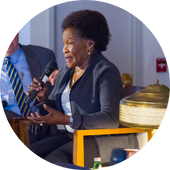 "Oftentimes, we ignore the parents of fighters. When I was in Nigeria, people were being rounded up simply for being mothers, brothers or sisters of Boko Haram members. But these are the very people who, if convinced, can influence the fighters to listen to reason. Too often, we treat them as enemies instead of engaging them. So I changed my approach—softened my stance, adjusted my language and spoke with them. I found value in patience and in being a good listener, rather than a preacher."
"Oftentimes, we ignore the parents of fighters. When I was in Nigeria, people were being rounded up simply for being mothers, brothers or sisters of Boko Haram members. But these are the very people who, if convinced, can influence the fighters to listen to reason. Too often, we treat them as enemies instead of engaging them. So I changed my approach—softened my stance, adjusted my language and spoke with them. I found value in patience and in being a good listener, rather than a preacher." - Christopher R. Hill, five-time US ambassador, whose last post was as ambassador to Serbia from 2022–2025
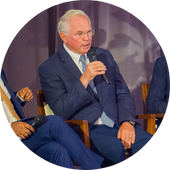
"In 1990s Bosnia, for example, we were trying to end a war. You can be very transactional in that, but we were also trying to preserve the transatlantic relationship and embed these notions of human rights in the real world. So whenever we were negotiating, we were also advancing a concept of what our society is going to look like."
- Tor Wennesland, the UN's former Special Coordinator for the Middle East Peace Process
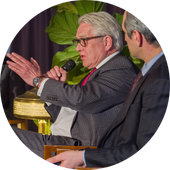 "If you don’t take the middle ground in describing a conflict and offering an offramp, but rather leave it to the parties involved, escalation follows. Gaza is a clear example of this...I’ve said many times that diplomacy failed in this instance because we didn’t succeed in placing a middle-ground narrative. The cataclysmic situation unfolding now is partly due to the parties’ willingness to continue the conflict, but also a failure of the international community—a failure to step in, create space and build a different narrative."
"If you don’t take the middle ground in describing a conflict and offering an offramp, but rather leave it to the parties involved, escalation follows. Gaza is a clear example of this...I’ve said many times that diplomacy failed in this instance because we didn’t succeed in placing a middle-ground narrative. The cataclysmic situation unfolding now is partly due to the parties’ willingness to continue the conflict, but also a failure of the international community—a failure to step in, create space and build a different narrative." - Moderated by Ian C. Kelly, Ambassador (ret.) in Residence at Northwestern University
01:38:40 | Designing the Process
- Barney Afako, lawyer and member of the Commission on Human Rights in South Sudan
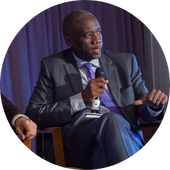
- Claire Hajaj, Executive Director of Inter Mediate
 "Reaching peace agreements is like 'everyone wants to go to heaven, but no one wants to die.'...The new world is a world of fractured geopolitics where no one is really setting the terms anymore. Everywhere you go, multiple parties hold deep stakes and almost equal leverage, each trying to pull the process in very different directions. That’s the dilemma faced by so many of us working in the space: how to design a process with integrity, and support parties in an environment where the old playbooks no longer apply."
"Reaching peace agreements is like 'everyone wants to go to heaven, but no one wants to die.'...The new world is a world of fractured geopolitics where no one is really setting the terms anymore. Everywhere you go, multiple parties hold deep stakes and almost equal leverage, each trying to pull the process in very different directions. That’s the dilemma faced by so many of us working in the space: how to design a process with integrity, and support parties in an environment where the old playbooks no longer apply." - Sergio Jaramillo, President of Fundación Acordemos and Colombia's former High Commissioner for Peace of Colombia
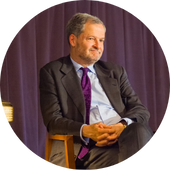 "In my experience, the most important thing is to be seen as consistent and serious over time. I don’t disagree with the emphasis on personalities or empathy, but I have a slightly different view—at least in our case—when it comes to trust. I’m somewhat mistrustful of trust itself. What matters is not that both sides trust each other, but that they trust the outcomes of what they’re producing together."
"In my experience, the most important thing is to be seen as consistent and serious over time. I don’t disagree with the emphasis on personalities or empathy, but I have a slightly different view—at least in our case—when it comes to trust. I’m somewhat mistrustful of trust itself. What matters is not that both sides trust each other, but that they trust the outcomes of what they’re producing together." - Moderated by Dan Krcmaric, Associate Professor of Political Science at Northwestern University
03:05:50 | Actors in Multilateral Peacemaking
- William B. Taylor, Distinguished Fellow with the Atlantic Council’s Eurasia Center, former Vice President for Europe & Russia at the US Institute of Peace (USIP) and former US ambassador to Ukraine

"From the start of Putin's invasion of Ukraine, his goal has been clear: to eliminate Ukraine as a country, to wipe it off the map. In that kind of situation, the idea of negotiating or finding common ground speaks for itself—you can’t find common ground with someone who wants to eliminate you. So the lessons learned from this will be critically important." - Shoaib Rahim, former Senior Advisor to Afghanistan's State Ministry for Peace
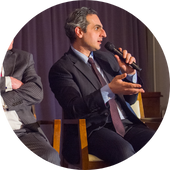 "A sense of defeat lives on in me and people in my generation who were a part of Afghanistan's reconstruction story over the past 20 years. Our sense of betrayal is due to the fact that we were essentially blindfolded, hands tied behind our backs, and forced into a so-called peace process, which was designed with our maximum disadvantage, if not failure, in mind. If you lose control of your war, you will lose control of your peace."
"A sense of defeat lives on in me and people in my generation who were a part of Afghanistan's reconstruction story over the past 20 years. Our sense of betrayal is due to the fact that we were essentially blindfolded, hands tied behind our backs, and forced into a so-called peace process, which was designed with our maximum disadvantage, if not failure, in mind. If you lose control of your war, you will lose control of your peace." - Tor Wennesland, the UN's former Special Coordinator for the Middle East Peace Process
- Moderated by Danielle Gilbert, Assistant Professor of Political Science at Northwestern University
04:33:25 | Challenges of Implementation
- Barney Afako, lawyer and member of the Commission on Human Rights in South Sudan
- Kate Fearon, founding member of the Northern Ireland Women's Coalition who participated in negotiations leading to the Good Friday Agreement

"Radical empathy requires developing a deep understanding of your opponent's position and desire to support them through the negotiation process, even after the agreement is done. Every negotiation is about dividing up power. One lesson from our 1998 agreement is how we made the pie bigger before we split it up." - Pavlo Klimkin, Ukraine's former Minister of Foreign Affairs and co-founder of the Centre for National Resilience & Development
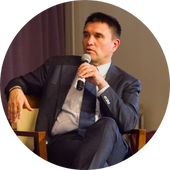
"Ukraine's society is horizontal, which is fundamentally different from Russia, where it's vertical. We have our president and all kinds of legitimate structures, but whatever result they go in to negotiate, they are engaging the active part of our society." - Abiodun Williams, Professor of the Practice of International Politics at Tufts University and former Senior Vice-President of the Center for Conflict Management at USIP
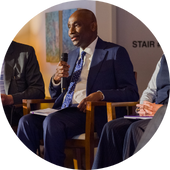
"A formal agreement between warring parties often doesn’t signal lasting peace. Implementation is frequently the graveyard of peace agreements. Peacemaking is not an event so much as a process. That’s why the terms of any accord—particularly its implementation—must be resilient enough to withstand efforts to undermine or overturn it." - Moderated by Pontus Ohrstedt, Director of Support to Peace Processes at Folke Bernadotte Academy, the Swedish government agency for peace, security and development

